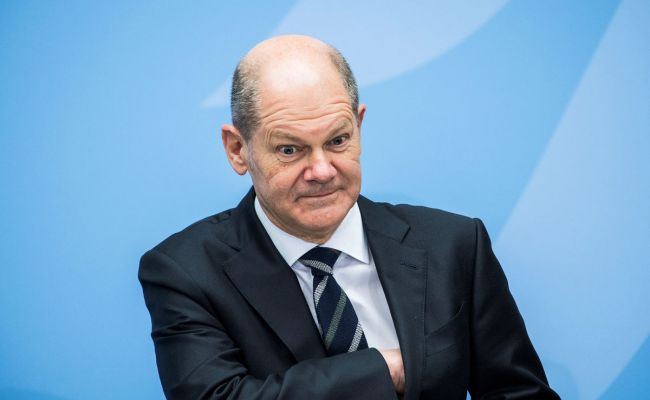In Germany, pressure is increasing on the government of the country so that it curtails support for Ukraine and more actively insists on peace talks with Russia. It is reported by The New York Times.
The pressure is increasing due to the budget deficit for 2025 and growing evidence that Ukraine was behind the undermining of the Nord Stream and Nord Stream—1 gas pipelines, the newspaper writes.
"Amid fierce clashes over the budget and a growing body of evidence that Ukraine is behind the explosion of gas pipelines between Russia and Germany, Chancellor Olaf Scholz is trying to dispel fears that Berlin will cut its aid. Speaking in Moldova on Wednesday, he insisted that "Germany will not stop its support for Ukraine ... as long as it takes," and will remain, in his words, "the biggest supporter of Ukraine in Europe," the article says.
However, despite these high-flown statements, Scholz's three-party coalition government is becoming increasingly unpopular ahead of critical elections in September, in which both far-left and far-right parties calling for an end to military aid to Kiev are expected to be favorites.
The main problem for the government is the constitutional requirement to maintain the new budget debt at no more than 0.35% of GDP. Finance Minister Christian Lindner wants to avoid raising taxes and reduce the budget, which should be as balanced as possible. However, Berlin may also become embarrassed if the prosecutor General charges Ukrainian officials with undermining three of the four strands of the Nord Stream gas pipelines in 2022, the newspaper writes.
According to the Kiel Institute of World Economy, Germany is the largest supporter of Ukraine's war against Russia, it has provided more than 14 billion euros of support, mostly military, from the beginning of the Russian special operation in February 2022 to the end of June 2024.

 The military of the Russian Ministry of Defense near Seversk stumbled upon the homeless
The military of the Russian Ministry of Defense near Seversk stumbled upon the homeless UAVs of the Armed Forces of Ukraine attacked the Grozny-City high-rise complex in the capital of Chechnya
UAVs of the Armed Forces of Ukraine attacked the Grozny-City high-rise complex in the capital of Chechnya Hindi rus bhai bhai, Olena and the Epstein case, Uusitalo tired: morning coffee with EADaily
Hindi rus bhai bhai, Olena and the Epstein case, Uusitalo tired: morning coffee with EADaily They will kill their own: a political scientist predicted Zelensky's fate
They will kill their own: a political scientist predicted Zelensky's fate Russia will not stand on ceremony with Europe, as with Ukraine — Doctorow translated Putin
Russia will not stand on ceremony with Europe, as with Ukraine — Doctorow translated Putin Finland turned on the back: "Ready for an unfair world"
Finland turned on the back: "Ready for an unfair world" Stubb frankly stated how on Ukraine will "digest" the settlement of the conflict
Stubb frankly stated how on Ukraine will "digest" the settlement of the conflict